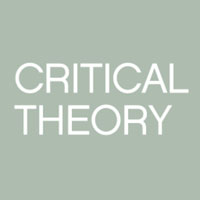Plato's view of Imitation in relation to Aristotle and Shelley
Plato, looking down upon the mimetic core of poetic creation, belittles poetry proposes banishment on the poets from his ideal Republic. He believes that poetry being an imitation of the world of phenomena which itself is an imitation of the world of ideas, a world of the highest order in his philosophy, presents the knowledge that is illusive.

But his own disciple sees in this very act of imitation a creation of meaning and imposition of order on the unordered nature. Shelley, on the other hand, defends poetry for its ability to acquaint us with the real unchanging world.
Plato locates reality in the world of ideas or forms or essences or archetypes rather than in the world of appearances that we perceive through our senses. He thinks that his world of appearances is a photocopy of the world of ideas and regards objects of this world as transitory and subject to decay. The knowledge of this world for him is illusive and relative. The poet, for Plato, imitates this transitory world and thus his work is only a representation of what is itself an inadequate and an ephemeral representation of the truly real, absolute or eternal. Poetry, therefore, is an imitation of an imitation that is twice removed from reality. Literature, for him, instead of guiding us to the reality fills our minds with wrong ideas and inspires in us the passion that ruins the exercise of reason. It gives us lies. So, the poets should be banished from the ideal state.
Aristotle completely disagrees with his guru; Plato in terms of where to locate reality. He does not believe that the world of appearance is merely an ephemeral copy of the changeless ideas. He believes that change is a fundamental process of nature. Reality, for Aristotle, is the process by which a form manifests itself from the concrete and by which the concrete takes on meaning working in accordance with ordered principles. The poet's imitation is an analogue of this process. He takes a form from nature and reshapes it in a different medium. The nature, which is always in process, is given its completion by the poet. He fills the gap that is created in nature; therefore he imposes am order. So the poet is "not only an imitator, but he is a creator too. Art is thus a sort of improvement, in that the poet brings to completion what nature is still endeavoring to complete. Art is a discovery of the meanings of actions apparent in nature and their expressions through the medium of words.
Shelley assumes a Platonic position to argue against Plato. He assigns a great role to imagination. Shelley breaks free from Platonic dilemma by recognizing that the best poet, through his use of imagination, comes directly into contact with the world of Platonic ideas, and so with the reality, instead of simply imitating the reflections of those ideas, as Plato himself claimed. Poets, for Shelley, are both legislators and the prophets. For poets, not only behold the present as it is and discourse those laws according to which present things ought to be ordered, but they behold future in the present, and their thoughts are germs of flower and the fruit of the latest time. The poet can see what is eternal and the best: the poet participates in the eternal and the infinite. Shelley also claims that imagination is an instrument of moral good.
Thus, where Plato regards poets and poetry baneful to the well being of society and its residents and regards it as leading us to an illusive knowledge, Aristotle sees in a poet/artist both an imitator and creator capable of bringing to perfection what is imperfect. Shelley, arguing from a different position, views a poet near to eternal ideas through the use of imagination.
Browse by Question
Browse by Republic
Republic by Plato: Introduction
Position of Poets in Plato's Ideal State
 |
bachelorandmaster.com |